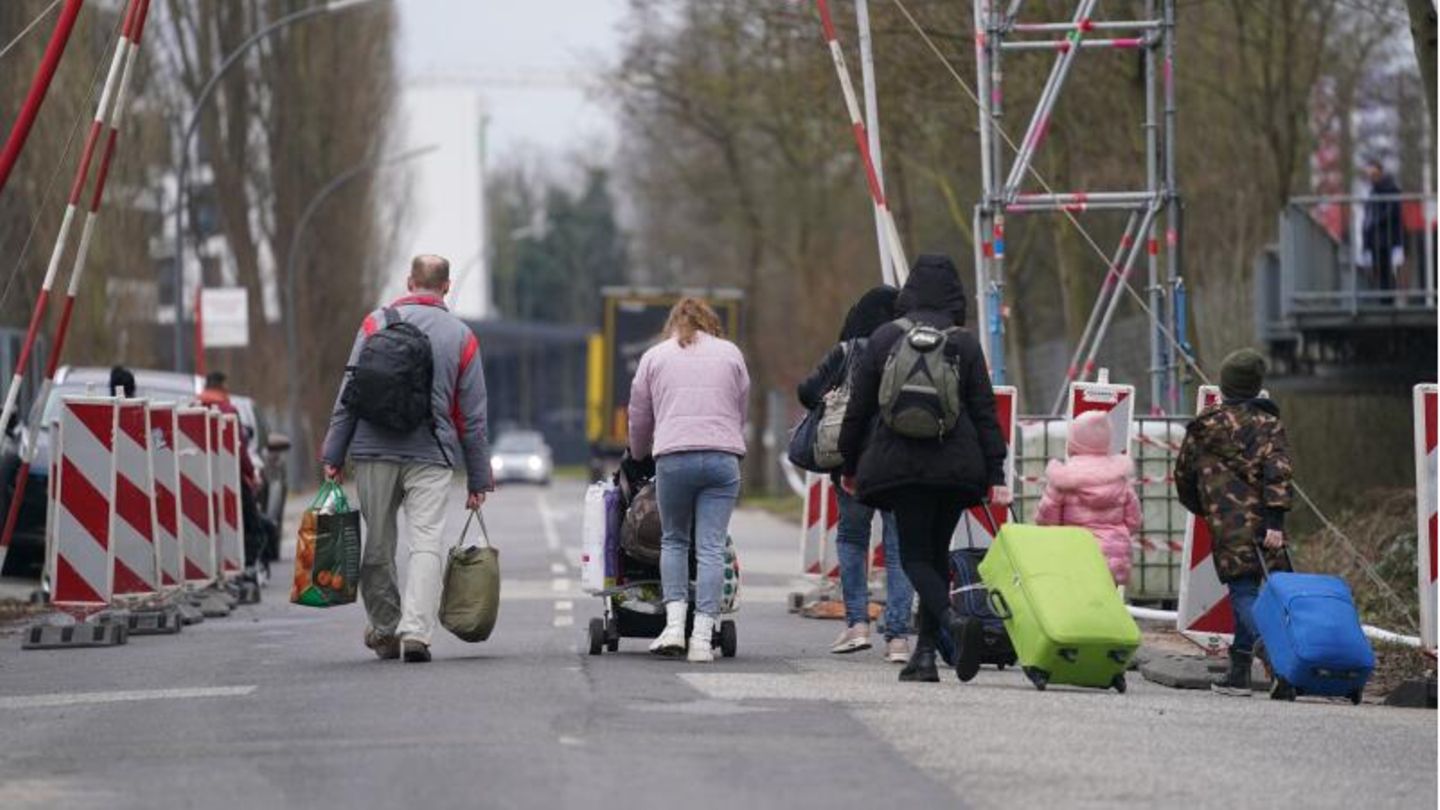In the middle of next week, the federal and state governments want to discuss the accommodation and integration of refugees. The prime ministers are increasing the pressure – and are also receiving support from federal politicians.
Before the planned federal and state consultations on refugee policy, the prime ministers renewed their demands for financial support from the federal government. “The 16 states have agreed across parties that the federal and state governments should share the costs, i.e. at least 50:50,” said North Rhine-Westphalia’s Prime Minister Hendrik Wüst of the Düsseldorf “Rheinische Post” and the Bonn “General-anzeiger”.
Government does not want to increase payments to countries for refugees
Saarland Prime Minister Anke Rehlinger (SPD) blamed Christian Lindner (FDP) for the hardened fronts: “In an extraordinary situation like this, the Federal Minister of Finance cannot simply say no to everything,” Rehlinger told the newspapers of the Funke media group. “All the figures show that we are currently in an exceptional special situation due to refugees from Ukraine.” The federal government must therefore “ensure reliable, permanent financing”.
The new governing mayor of Berlin, Kai Wegner (CDU), called for the “Spiegel” to share the financial burden fairly. Thuringia’s Minister of the Interior Georg Maier warned in the editorial network Germany (RND) that it would be a godsend for the AfD if the municipalities had difficulties in covering the costs.
So far, the federal government has not been willing to increase its payments, nor is it interested in a return to the system of per capita flat rates. Instead, a draft from the Chancellery for a draft resolution for the meeting calculates how much the federal government is already contributing to refugee-related expenditure.
invasion by Russia
Shocking, disturbing and infinitely sad: pictures from a year of war in Ukraine
The proposals contained in the paper, which are intended to provide relief, include extending the validity of the residence permit for refugees with restricted protection status from one to three years. The idea behind it: If people with subsidiary protection status no longer have to go to the immigration authorities every year, the staff has more time to take care of other tasks. It is also being considered how foreigners who have come to Germany despite an entry ban can be more easily detained pending deportation.
The Green Federal Chairwoman Ricarda Lang supported the states in their demands. There is a common interest that good solutions can be found locally. “If support is needed for this, the federal government must help, including financially,” she told the “Stuttgarter Zeitung” and the “Stuttgarter Nachrichten”. The fact that Federal Interior Minister Nancy Faeser (SPD) referred to the negotiations on the new asylum system in Europe is important, said Lang. “But the negotiations will take many months. That doesn’t help the municipalities that are now on fire.”

Faeser sees good chances of finding a solution to migration policy within the EU soon. “We have already broken through the years of mutual blockade in the EU,” she told the “Bild am Sonntag”. The main focus is on the proposal for asylum centers at the EU’s external borders, from where asylum seekers can also be sent back or distributed fairly.
At the Council meeting of EU interior ministers on June 8, the issue will be the reform of the Common European Asylum System (CEAS), which has been controversial for years. Above all, countries on the EU’s external borders such as Italy and countries such as Germany, which are the destination of many asylum seekers, have a great interest in reaching an agreement on this soon with a view to the European elections next year.
Source: Stern
I have been working in the news industry for over 6 years, first as a reporter and now as an editor. I have covered politics extensively, and my work has appeared in major newspapers and online news outlets around the world. In addition to my writing, I also contribute regularly to 24 Hours World.




